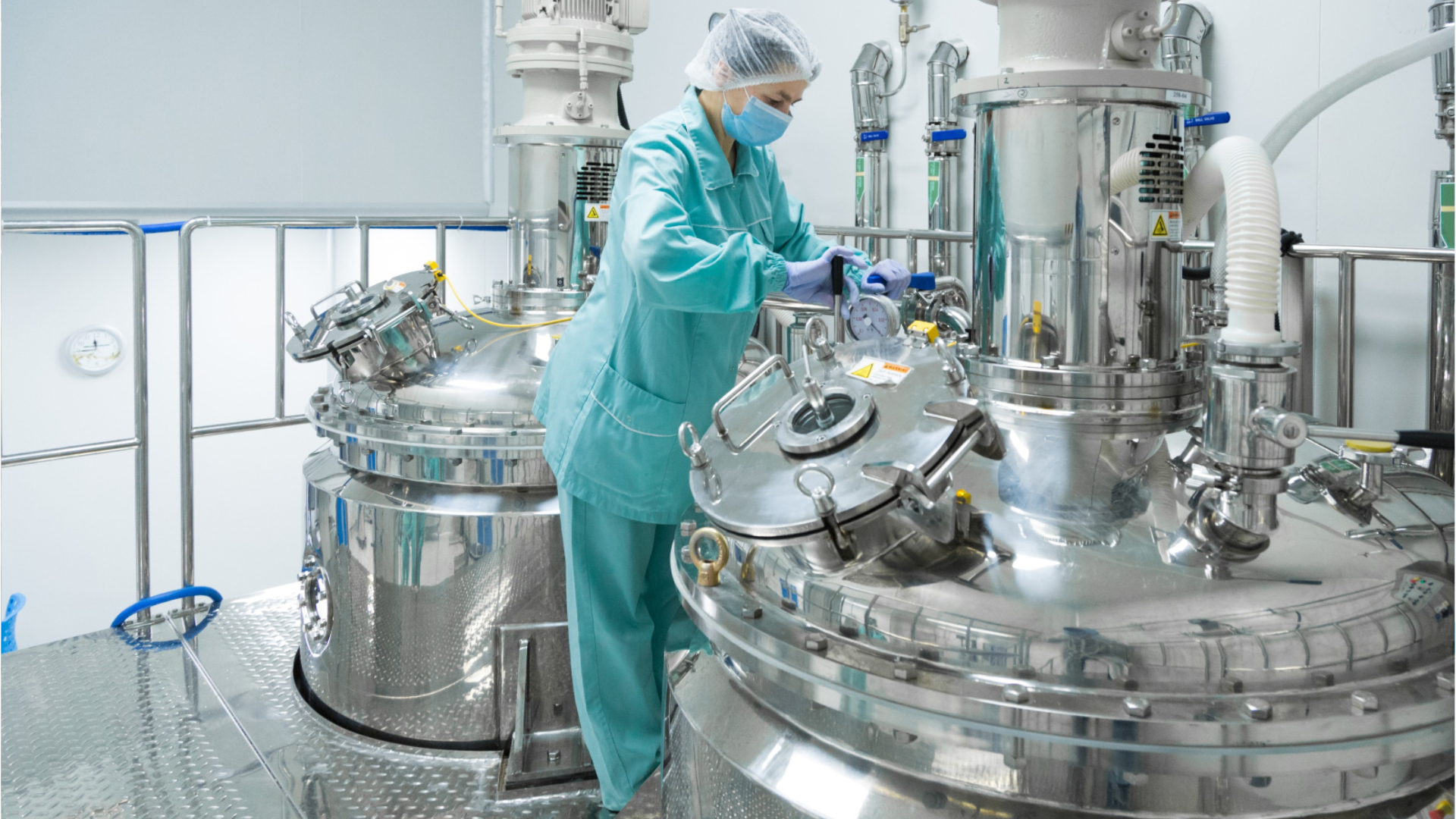Chemical Equipment Operators & Tenders
Chemical Operator, Multiskill Operator, Outside Operator, Vessel Operator
 Select a military branch to see samples.
No similar titles were found.
Select a military branch to see samples.
No similar titles were found.
Cannon Crewmember; Cavalry Scout; Combat Engineer; Engineer Equipment Maintenance Warrant Officer; Quartermaster and Chemical Equipment Repairer; Unit Supply Specialist; Wheeled Vehicle Mechanic
No similar titles were found.
Cryogenics Equipment Operator
Automated Electrolytic Oxygen Generator (AEOG) Mechanical Maintenance Technician; Cryogenics Technician, Overseas Shore Based Equipment Operator/Maintainer; Submarine Reactor Controls Operator
No similar titles were found.
What they do:
Operate or tend equipment to control chemical changes or reactions in the processing of industrial or consumer products. Equipment used includes devulcanizers, steam-jacketed kettles, and reactor vessels.
On the job, you would:
- Observe safety precautions to prevent fires or explosions.
- Record operational data, such as temperatures, pressures, ingredients used, processing times, or test results.
- Control or operate equipment in which chemical changes or reactions take place during the processing of industrial or consumer products.
Knowledge
Manufactured or Agricultural Goods
- manufacture and distribution of products
Math and Science
- chemistry
- arithmetic, algebra, geometry, calculus, or statistics
Engineering and Technology
- mechanical
- computers and electronics
Arts and Humanities
- English language
Skills
Basic Skills
- keeping track of how well people and/or groups are doing in order to make improvements
- listening to others, not interrupting, and asking good questions
Problem Solving
- noticing a problem and figuring out the best way to solve it
Abilities
Verbal
- communicate by speaking
- listen and understand what people say
Controlled Movement
- quickly change the controls of a machine, car, truck or boat
- use your arms and/or legs together while sitting, standing, or lying down
Hand and Finger Use
- hold or move items with your hands
- keep your arm or hand steady
Visual Understanding
- quickly compare groups of letters, numbers, pictures, or other things
Personality
People interested in this work like activities that include practical, hands-on problems and solutions.
They do well at jobs that need:
- Stress Tolerance
- Cautiousness
- Attention to Detail
- Dependability
- Integrity
- Self-Control
Technology
You might use software like this on the job:
Electronic mail software
- IBM Notes
- Microsoft Outlook
Presentation software
- Microsoft PowerPoint
Spreadsheet software
- Microsoft Excel
Education
Education: (rated 2 of 5)
high school diploma/GED or
some college
usually needed
some college
usually needed
Job Outlook
Average
New job opportunities are likely in the future.
Explore More
- Chemical Plant & System Operators
- Cleaning, Washing, & Metal Pickling Equipment Operators & Tenders
- Heat Treating Equipment Setters, Operators, & Tenders, Metal & Plastic
- Separating, Filtering, Clarifying, Precipitating, & Still Machine Setters, Operators, & Tenders
- Water & Wastewater Treatment Plant & System Operators
You might like a career in one of these industries:
See more details at O*NET OnLine about Chemical Equipment Operators & Tenders.






